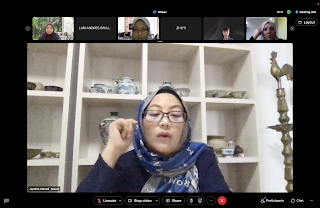REFLECTIVE WRITING WEEK 13: TRANSFORMATIONAL LEADERSHIP, TRANSACTIONAL LEADERSHIP, SERVANT LEADERSHIP AND CHARISMATIC LEADERSHIP
In this topic, Dr Jamilah shared with us the concept of Transformational Leadership, Transactional leadership, Servant Leadership and Charismatic Leadership. We also discussed about the characteristics, advantages and disadvantages of these style of leaderships. During the beginning of the class, we watched the video of Oprah Winfrey, the icon of transformational leader and charismatic leader. Her story is very inspiring, she is selfless and she rise by lifting others.
In my opinion, transformational leadership is the best style among all but it is so hard to implement. It needs a very strong will and purpose. People who become transformational leaders are extraordinary and those people are not born everyday.However, these style of leadership can be applied in different situation and in some situations, leader can apply two leadership styles simultaneously.
To me, the most successful and inspiring transformational leader is Prophet Muhammad. The stories of he transformed people of the desert into high visionary people, knowledgeable, philanthropists and later world leaders are not the stories we are not familiar with. The successful of big empires such as Umayyah and Abbasid began with this man. Those inspiring stories are still alive until today. He himself was the man of his word, people called him “a walking holy quran”, the perfect example of transformational leader. The concept of transformational leadership is in the preferred Islamic tradition of leadership, and this is exemplified and indeed demonstrated by how the Prophet Muhammad transformed the society in which he lived through inspiration, motivation and intellectual stimulation (Abdallah, Citaku, Waldrop, Zillioux, Preteni & Khan, 2019)
Nazharat, Vol. 26 No. 02, Desember 2Mohammad (PBUH) transformed the society in which he lived through inspiration,
A research titled “A Review of Servant and Transformational Leadership in Islamic Perspectives”, (Sulaeman,2019) finds that two types of Islamic leadership were identified based on the leadership style of the prophet Muhammad (PBUH): servant and transformational leadership style. As the most prominent transformational leader, he was also practising servant leadership style. According to Beekun, 2012, there are five attributes of servant leader that Prophet Muhammad showed, service before self, listening as a means of affirmation, creating trust, focus on what is feasible to accomplish and lend a hand.
As conclusion, this topic has taught me about the styles of leadership which can give big impact in others’ lives. As Dr. Jamilah mentioned, one of the strongest purpose one can have to be a transformational leader is the drive to leave something behind in this world. Because no one can live forever, what is important is the legacy we leave behind. The legacy that will benefit us richly in hereafter.

Comments
Post a Comment